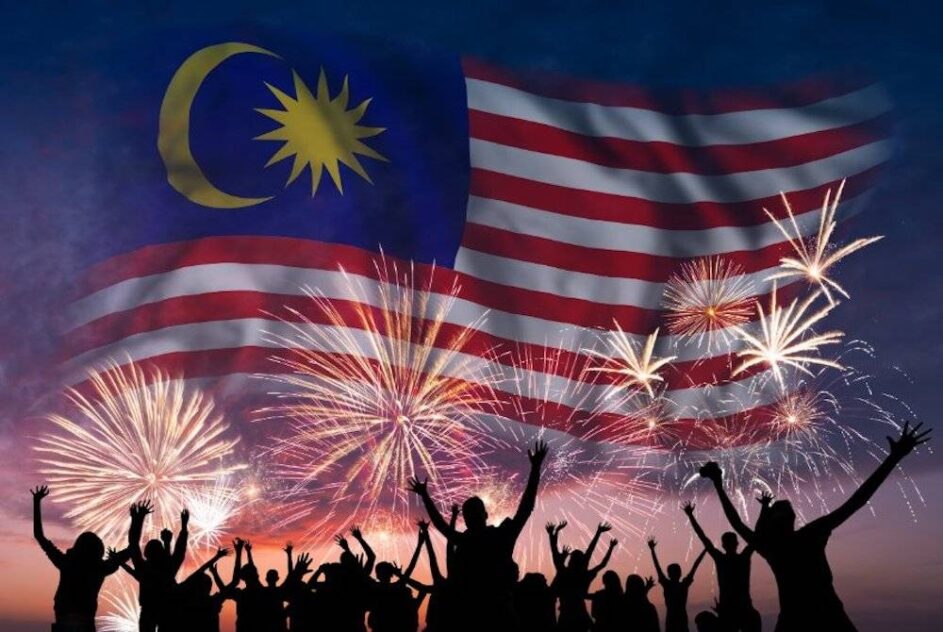
From Hartini Zainudin
On this National Day, we are compelled to reflect on the plight of the most vulnerable among us, particularly the Rohingya and stateless children who have suffered profound trauma, akin to that of the Palestinians we support from afar.
We find ourselves at a crossroads where reflection and action intertwine. This year marks not only the 67th anniversary of our nation’s independence but also a somber reminder of the plight faced by Rohingya children – many unaccompanied, nearly all aged under 10, alongside mothers with young children – who have endured confinement in the Baitul Mahabbah detention centre for a year as of Sept 4.
When is their release? Where is the love and compassion for these innocent souls, confined in detention centres, stripped of their rights, and subjected to neglect?
While we gather to honour our freedom and unity, we must confront the uncomfortable truth of our selective compassion, an inconsistency that undermines the very essence of Merdeka.
The spirit of Merdeka is rooted in the struggle for freedom and the celebration of our diverse identities. Yet, as we revel in our independence, we must ask ourselves: who are we truly liberating?
The stark contrast between the support extended to some Palestinian refugees and the treatment of Rohingya children in detention, or attempting to take the rights of other categories of stateless children by amending the Federal Constitution, reveals a troubling narrative of exclusion.
While our government has taken commendable steps to assist wounded Palestinians from Gaza – providing medical care and educational support – other refugees, asylum seekers and stateless communities continue to face systemic neglect and discrimination.
Nelson Mandela profoundly stated,
To deny people their human rights is to challenge their very humanity.
This truth resonates deeply as we witness the selective compassion that pervades our society.
Safety, dignity and opportunity to do better
The Rohingya children, many unaccompanied and all under 10, are not mere statistics. They are children deserving of safety, dignity, and the opportunity to thrive. Yet, they languish in inhumane conditions, their cries for help echoing in the silence of our indifference.
The UN Convention on the Rights of the Child (CRC) emphasises that every child has the right to protection, care, and the opportunity for development.
It declares,
States parties shall respect and ensure the rights set forth in the present convention to each child within their jurisdiction without discrimination of any kind.
Yet, in Malaysia, these rights are often denied, leaving the most vulnerable to suffer in silence.
In Islam, children are regarded as a trust from God, deserving of kindness and protection. The Quran teaches us to care for the weak and to treat children with the utmost compassion.
Yet, as we celebrate our independence, we must confront the hypocrisy of our actions. How can we claim to honour freedom while turning a blind eye to the suffering of children within our borders?
The anger we feel at this injustice is justified. As Martin Luther King Jr asserted,
Injustice anywhere is a threat to justice everywhere.
The double standards in our treatment of refugees – where some are embraced while others are marginalised – reveal a troubling narrative that undermines our shared humanity. This selective compassion not only harms those we choose to exclude but also diminishes our own dignity.
We must rise to the occasion and advocate for all children, ensuring that they receive the same level of care and support as their Palestinian counterparts.
It is our moral obligation to challenge the narratives that dehumanise them and to foster an environment of understanding and solidarity.
Let us remember that true freedom is not merely the absence of oppression but the presence of justice for all. As we reflect on our national identity, let us not forget that
, as King wisely stated.a right delayed is a right denied
We have the power to redefine what it means to embody the Merdeka spirit – a spirit that is inclusive, compassionate, and unwavering in its commitment to human rights.
This Merdeka, let us not only celebrate our independence but also recommit ourselves to the ideals of justice and equality.
Please stand in solidarity with all children, particularly the Rohingya, the stateless, poor and marginalised children in Malaysia.
They have faced unimaginable hardships – no food, little education, minimal access to health services, not much love, the fear of detention, and very little freedom as children, let alone as fellow human beings.
By doing so, we honour the true essence of Merdeka – a celebration of freedom that is shared by all, regardless of their background or circumstances.
Together, we can build a Malaysia that reflects the values of compassion and inclusivity that our independence represents, ensuring that no child is left behind in the shadows of our society. - FMT
Hartini Zainudin is the founder of Yayasan Chow Kit.
The views expressed are those of the writer and do not necessarily reflect those of MMKtT.





